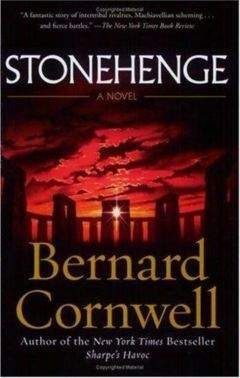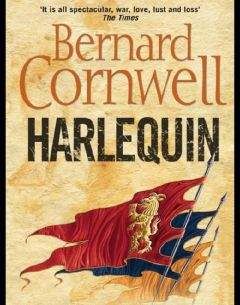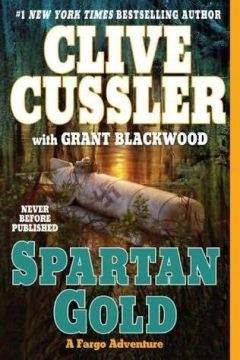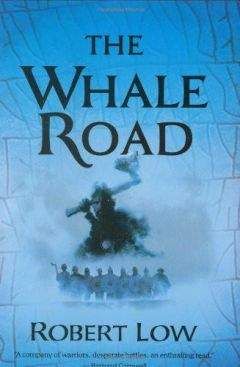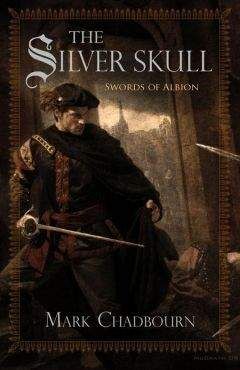Kargan hesitated, but Aurenna's certainty had taken the anger from the crowd and they obeyed her. Saban watched them go, then followed Aurenna. 'And when the boats do not come tomorrow,' he asked her, 'how will we stop them killing us?'
'But the boats will come,' Aurenna said. 'Erek told me in a dream.' She was quite confident, even astonished that Saban might doubt her dream. 'The dream mists have cleared,' she told him happily, 'and I see Erek's future.' She smiled at him, then led Haragg to her hut where she soothed the trader's grief. He was breathing hard for the arrow had struck deep and pink blood was dribbling from his mouth, but Aurenna assured him he would live and gave him a potion to drink and then pulled the arrow's shaft free.
Next morning, after Cagan's body had been burned on a pyre, almost all the tribe walked south to the headland where the river met the sea, and there they waited above the grey waters. The white birds wheeled and their cries were like the wailing of drowned spirits. Saban was on the cliff top with Scathel and Mereth, and Kargan had come with the folk who had followed him the previous night, but Aurenna did not go. 'The boats will come,' she had told Saban that morning, 'and I do not need to see them.' She stayed with Haragg.
The morning passed and all that came was a squall. The rain hissed on the sea and the cold wind whipped it into the faces of the watching crowd. Scathel was praying, Saban was hunched in the lee of a rock and Kargan was pacing up and down the cliff top thumping the pale grass with his heavy spear. The sun was hidden by cloud.
Kargan finally faced Saban. 'You and your brother have brought a madness to Sarmennyn,' he said flatly.
'I brought you nothing,' Saban retorted. 'Your madness came when you lost the gold.'
'The gold was stolen!' Kargan shouted.
'Not by us.'
'And a temple cannot be moved!'
'The temple must be moved,' Saban said wearily, 'or you and I will never have happiness again.'
'Happiness?' Kargan spat. 'You think the gods want our happiness?'
'If you want to know what the gods want,' Saban said, 'then ask Scathel. He's a priest,' and he gestured towards the gaunt man who had been praying at the cliff's edge, but Scathel was no longer holding his arms to the sky. Instead he was staring eastwards, staring into the grey, shifting veils of rain and suddenly he shouted. He shouted again, pointed his staff and all the watching people turned to see where the high priest looked.
And they saw boats.
They saw a fleet of boats: a fleet racing home against rain and wind as it was carried on the last of the tide's surging ebb. Lewydd had split the great hulls apart so that each triple boat was now three, and the beams that had supported the stones were stored inside the hulls driven by cold men eager to be home. The crowd, which the night before had murdered Cagan and had been ready to slaughter everyone in Aurenna's settlement, now cheered. Lewydd, standing in the leading boat, waved his paddle. Saban was counting the boats and saw they were all there, every one. They came from the sullen waves into the lee of the headland in the river's mouth where the exhausted paddlers waited for the tide to turn.
The evening tide brought the fleet upriver and, just as Aurenna had promised, the crews sang as they guided their big boats into her settlement. They sang the song of Dilan, the sea god, and they drove their paddles in time to the song's rhythm and the crowd, which had followed them upstream, sang with them.
Lewydd jumped ashore and was greeted with embraces, but he fought through the crowd to put his arms about Saban. 'We did it,' he exulted, 'we did it!'
Saban had made a great fire in the open space beside the half-finished boats. The women had pounded roots and grain, and Saban had ordered venison roasted on the fire. The boats' crews were given dry pelts and Kargan returned from Kereval's settlement with pots of liquor and still more people so that it seemed to Saban that all of Sarmennyn was crowded around his home to hear Lewydd's tale. He told it well and the listeners groaned or gasped or cheered as he described how the boats had carried the stones to the River Sul at summer's end. There had been no difficulty in the voyage, he said. The boats rode the seas well, the stones stayed secure and the river was safely reached, but then their troubles began.
The supporters of Stakis, who had been defeated by Lengar, still roamed Drewenna and some of those men demanded tribute that Lewydd did not have. So he stayed at the Sul's mouth where he made himself a palisade and waited for men to come from Kellan, the new chief of Drewenna, and drive the vagabonds away.
Kellan's spearmen escorted the boats up the Sul, but when they reached the shallow headwaters where the boats could no longer float there were no sledges waiting. Kellan had promised to make the sledges, but he had broken the promise and so Lewydd walked to Ratharryn and there argued and pleaded with Lengar, who, finally, agreed to persuade Kellan. By then, however, the autumn winds were cold and the rain was falling and it took long days of tiresome work to fell the trees and trim the trunks and make the great sledges onto which the stones, and then the boats, were laid.
Oxen hauled the boats and the sledges over the hills to the east-flowing river where the boats were relaunched and the stones reloaded, and Lewydd then took the fleet east until they came to Mai's river up which he poled the stones to Ratharryn.
And there he had left the stones. He had split his big boats into their three hulls and had retraced his steps, dragging the boats across the watershed and relaunching them in the Sul, but when he reached that river's mouth the winter had struck cold and hard and he had not dared come home across the bitterly turbulent sea and so he had waited at the Sul's mouth until the weather relented.
Now he and all his men were home. The first stones were in Ratharryn. And Saban wept because Cagan was dead and burned, but also because there would be joy on earth. The temple was being moved.
Aurenna's second child was a girl, and Aurenna called her Lallic, which meant 'the Chosen One' in the Outfolk tongue. Saban was not happy with the name at first, for it seemed to impose a destiny on the child before fate had had a chance to decide her life, but Aurenna insisted and Saban became used to it. Aurenna never again conceived, but her son and her daughter grew healthy and strong. They lived by the river and Leir could swim almost before he could walk. He learned to paddle a boat, draw a bow and spear fish in the river shallows. And as the brother and sister grew they watched the stones go past their hut towards the sea.
It took five years to move them all. Lewydd had hoped to do it in less, but he would take his cumbersome fleet to sea in nothing less than perfect weather, and one year no stones were moved at all and the year after it was only possible to make one voyage, but when the boats did set out the gods were kind and no more stones were lost and not one man was drowned.
Lewydd brought news back from Ratharryn, telling how the temple was being remade and how the war between Lengar and Cathallo went on. 'Neither side can win,' Lewydd said, 'and neither side will give in, but your brother believes that the temple will bring him good fortune. He still thinks it's a war temple.'
One year he brought news that Derrewyn had given birth to a child.
'A daughter,' Saban said.
'You heard?' Lewydd asked.
Saban shook his head. 'I guessed. And she's well?'
Lewydd shrugged. 'I don't know. I just heard that your brother's priests put a curse on mother and child.'
That night Saban went to the sun-bride's temple in Kereval's settlement and buried his mother's amber pendant beside one of the stones. He bowed to Slaol and asked the god to lift Ratharryn's curses from Derrewyn and her daughter. His mother, he knew, would forgive him, though whether Aurenna would be as understanding he did not know: when she asked him what had happened to the amulet he pretended its sinew had broken and that the amber had fallen in the river.
It was in springtime of the fifth year that the very last stones of the Temple of Shadows were brought down the river. There were only eleven of the dark pillars left and all were hoisted on to their triple-hulled boats and floated downstream to a mooring off Aurenna's settlement. Lewydd was eager to carry the final cargo eastwards, but both Scathel and Kereval wanted to accompany the stones because, with the safe delivery of the last boulders, Sarmennyn's side of the bargain would be fulfilled and Lengar must yield the rest of Erek's treasure. Scathel and Kereval wanted to be present when the treasures were restored to their tribe and they insisted that a small army of thirty spearmen travel with them and it took time to collect the food that those men would need.
No sooner had the extra boats been provisioned than the wind turned sharply into the east to bring cold squalls and short, steep seas. Lewydd refused to risk the boats and so they waited in the river, bucking on their moorings under the impact of the gusting wind and changing tides. Day after day the wind stayed cold and when at last it turned into the west it blew too hard and still Lewydd would not take the fleet to sea.
So they waited, and one day towards the end of spring, on a day in which the wind howled at the tree tops and broke white in shattering spume against the cliffs, a boat appeared in the west, coming from the land across the sea. The boat was manned by a dozen paddlers who fought the storm. They shrieked at it, bailed their boat, paddled again, cursed the wind god and prayed to the sea god and somehow brought their fragile boat safe past the foam-shredded headland and into the river. They drove their hull upriver against the tide's ebb, too angry to wait for the flood, and they chanted as they paddled, boasting of their victory over the storm.
The boat brought Camaban back to Sarmennyn.
He alone had showed no fear at sea. He alone had not bailed, paddled, cursed, nor chanted, but had sat silent and serene, and now, as the boat grounded at Aurenna's settlement, he stepped ashore with apparent unconcern. He staggered slightly, still expecting the world to pitch and rock, then walked to Aurenna's hut.
At first Saban did not recognise his brother. Camaban was still as thin as a sapling and gaunt as a flint blade, but his face was now terrifying for he had scarred his cheeks and forehead with deep vertical cuts into which he had rubbed soot so that his face was barred black. He had plaited his long hair into a hundred narrow braids that writhed like vipers and were hung with a child's knuckle bones. Leir and Lallic shrank from the stranger who sat by Saban's fire and said nothing and who did not even respond when Aurenna offered him food.
He sat there all night, saying nothing, eating nothing, awake.
In the morning Aurenna revived the fire and heated stones to put in the broth and still Camaban did not speak. The wind fidgeted the thatch, plucked at the moored boats and drove rain across the settlement where the crew of Camaban's boat had found shelter.
Saban offered his brother food, but Camaban just stared into the fire. A single tear once ran down a black scar, but that could have been the wind-whirled smoke irritating an eye.
It was not till mid-morning that he stirred. He frowned first, pushed hair from his face, then blinked as if he had just been woken from a dream. 'They have a great temple in the land across the sea,' he said abruptly.
Aurenna stared at Camaban in a trance, but Saban frowned, fearing that his brother would demand that this new temple be fetched by boat.
'A great temple,' Camaban said with awe in his voice, 'a temple of the dead.'
'A temple to Lahanna?' Saban asked, for Lahanna had ever been reckoned the guardian of the dead.
Camaban shook his head. A louse crawled from his hair down into his beard, which was braided like his hair and decorated with more small knuckle bones. He smelt of brine. 'It is a temple to Slaol,' he whispered, 'to the dead who are united with Slaol!' He smiled suddenly, and to Saban's children the smile looked so wolfish that they shrank from their strange uncle. Camaban made the shape of a low mound with his hands. 'The temple is a hill, Saban,' he said enthusiastically, 'circled by stone and hollowed out, with a stone house of the dead in its heart. And on the day of Slaol's death the sun pours down a rock-lined shaft into the very centre of the house. I sat there. I sat among the spiders and the bones and Slaol talked to me.' He frowned, still gazing into the fire. 'Of course it's not built to Lahanna!' he said irritably. 'She has stolen our dead, and we must reclaim them.'
'Lahanna has stolen the dead?' Saban asked, puzzled by the concept.
'Of course!' Camaban shouted, turning his eerily striped face to Saban. 'Why did I never see it before? What happens when we die? We go the sky, of course, to live with the gods, but we go to Lahanna! She has stolen our dead. We are like children without parents.' He shuddered. 'I met a man once who believed the dead go to nothing, that they are lost in the chasm between the stars, and I laughed at him. But maybe he is right! When I sat in that house of the dead with the bones all about me I heard the corpses of Ratharryn calling to me. They want to be rescued, Saban, they want to be reunited with Slaol! We have to save them! We have to bring them back to the light!'
'You have to eat,' Aurenna said.
'I must go,' Camaban said. He looked again at Saban. 'Have they started building the temple at Ratharryn?'
'So Lewydd says,' Saban confirmed.
'We have to change it,' Camaban said. 'It needs a death house. You and I will rebuild it. No mound, of course. The people across the sea are wrong about that. But it must be a place to pull the dead back from Lahanna.'
'You can rebuild it,' Saban said, 'but I shall stay here.'
'You will go!' Camaban shouted, and Aurenna scurried to comfort Lallic who had begun to weep. Camaban pointed a bony finger at Saban. 'How many stones must still be delivered?'
'Eleven,' Saban said. 'Just those you see on the river.'
'And you shall go with them,' Camaban said, 'because it is your duty to Slaol. Carry the stones to Ratharryn, and I shall meet you there.' He frowned. 'Is Haragg here?'
Saban jerked his head to show that the big man was in his hut. 'His son died,' he told Camaban.
'Best thing for him,' Camaban said harshly.
'And Haragg himself was wounded,' Saban went on, 'but he recovered, though he still mourns Cagan.'
'Then he must be given work,' Camaban said, then stood and ducked out into the wind and rain. 'It is your duty to go to Ratharryn, Saban! I spared Aurenna's life for you! I spared your life! I didn't do it so you could rot on this river bank, I did it for Slaol and you will repay him by building his temple.' He went to Haragg's hut and pounded a fist on the mossy thatch. 'Haragg!' he shouted. 'I need you.'
Haragg came from the door with a startled expression. He was completely bald now and unnaturally thin, so that he looked old before his time. The arrow's strike had left him sick for a long time and there had been days when Saban was sure the breath would die in the big man's throat, but Haragg had survived. Yet it seemed to Saban that he was wounded in his spirit far more grievously than in his body. Haragg now stared at Camaban and, for a heartbeat, did not recognise the man with a striped face, then he smiled. 'You've come back!' he said.
